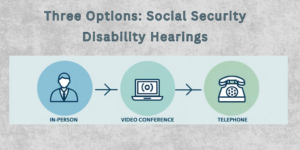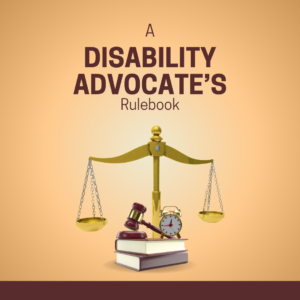What Happens if You Don’t Submit Your Work History?
When the Social Security Administration (SSA) sends a work history report to its applicants, many people are surprised. To most, it seems odd that Social Security would want something that looks like a resume as part of the disability determination process. However, this form provides vital information for the accurate determination of disability. Failure to return this form prevents the SSA from completing a fair assessment of your case and almost always results in denial.
Additional Tips: Can I Work While I’m Earning Disability?
Past Relevant Work
The SSA’s disability evaluation process considers former work that you have done in the last 15 years. This is work they feel you may know how to do, or may have trained you in a skill that would allow you to transition into another job. Work that is older than 15 years is no longer applicable for two reasons. Either:
- You would have likely forgotten how to perform the skill
- Or the industry has changed enough that the skills are no longer applicable
For example, many skills that were required for TV repair fifteen years ago are irrelevant to modern TVs. Thus, those skills would be considered outdated because the job market is looking for different techniques.
Qualifying Standards
There are several conditions to define past relevant work. For example, the work must be within the 15-year window and must have been at a full-time capacity (or produced income equivalent to full-time work). Seasonal work, like Christmas help at a retail store, usually does not meet the duration requirements for past relevant work due to the short duration. The work also had to be done competitively. Jobs that involve working for family or friends with special accommodations–like extra breaks, reduced workloads, and extra time off–are often not counted as past relevant work.
Strength Level
The work history report also allows Social Security to understand how physical the past work was. This form tells the SSA how much lifting and carrying is required and how physically active you were, including standing, stooping, crawling, etc. Every past job is rated on a strength scale that is compared to what level of activity the SSA thinks you can still perform despite your conditions. Without the work history report, the SSA cannot determine whether or not you are still capable of meeting your former criteria. This uncertainty often leads to denial.
Skill Level
Much like strength level, each past job is rated on the skill level as well. They take into consideration how long it took to learn the job, the complexity of the tasks, how much autonomous judgment was needed, and how often you might encounter changes and obstacles to maneuver around. Without your input, the SSA cannot compare your cognitive ability to that needed to do this past work
What Happens if Social Security Gets My Work History Wrong?
A qualified representative can help make sure Social Security classifies your past work history correctly. There are many scenarios where a job may be incorrectly recorded. Here’s an example of how that might look.
Example: Many older Americans have in-home help due to their age or disability. Some of those in-home workers dispense medication, while others might work as shower aids, and others as companions– such as reading to the elderly or playing cards with them.
In this example, handling medication requires more technical skills and knowledge than being a shower aid. And providing a service as a shower aide is much more physically demanding than most companionship roles. Each of these employees care for the elderly, but each service varies by technical skill, social interaction, and physical strength. To continue with this example, if each applicant were to file for social security due to knee degeneration, it’s important for the SSA to understand that this would heavily affect the shower aid’s ability to continue working. An application due to a neurological impairment could cause difficulty with memory or social skills, which would be a severe setback for anyone who needs those skills to offer care.
This example illustrates that a description of “In-Home Caretaker” isn’t specific enough work history to acknowledge the physical demands of their role. If your work history does not accurately reflect the work that you did, the way that your claim is presented may lead to a denial.
Here’s How Our Disability Representative Can Help!
As a local representative, our disability advocate will know your case from start to finish. We’ll be involved every step of the way, and you’ll speak to the same person every time. Our goal is to make your case the easiest one to approve.
For that reason, we don’t just fine-tune what you have and put it together in a cut-and-paste format. We’ll meticulously review your case and provide feedback on the weak areas of your application and offer clear directions on what information we need and where you can find them.
Whether you’ve already begun the application process or are just getting started, we encourage you to schedule a FREE consultation to help determine the best strategy for your case. Our mission is to eliminate the red tape and mountains of paperwork so you can focus on your health and the things that matter.
⏰ Schedule an appointment from anywhere in the US! 📱
Let’s Connect!
✅ Facebook: Add Me!
✅ Instagram: Join the Fun
✅ Twitter: Follow
✅ YouTube: Subscribe Here
The Disability Process 101:
- Programs available
- How to apply or appeal
- How disability is determined
- Tips for how to build a strong case
Contact Us:
📞 417-812-6698
Ur Disability Rep
1304 E Kingsley St
Springfield, MO 65804
👌 URDisabilityrep.com: I want to be YOUR disability rep





